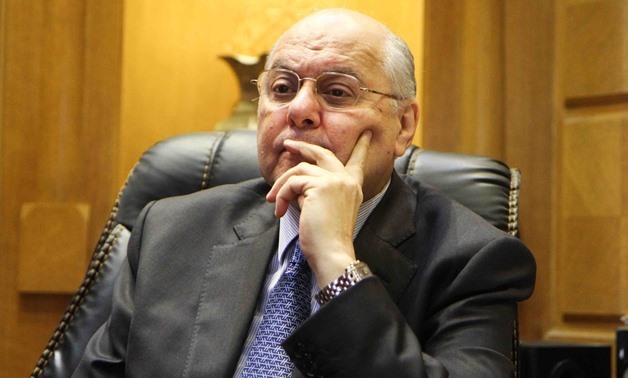
Defeated candidate Moussa Moustafa Moussa is following up the announcement of the final results of Egypt’s 2018 presidential election on Monday - Egypt Today- Hassan Mohamed
CAIRO – 3 April 2018: It had been unlikely for parties to have any chance to nominate a candidate for a presidential election before 2005. Moussa Moustafa Moussa’s nomination has arguably preserved the rights that political parties have gained since then.
As domestically and internationally expected, President Abdel Fatah al-Sisi defeated Moussa in the 2018 presidential election in a landslide victory.
Although Moussa had often said he is optimistic about his chances of winning election, he received 656,534 votes, making up only 2.9 percent of the valid ballots. Yet, Moussa may have intentionally or unintentionally opened the door for a more democratic, multi-party presidential election in 2022, in which a strong challenge would be recognized.
In a press conference on Monday, Moussa said he will run in Egypt’s 2022 presidential election after he confessed that defeating Sisi in the election was impossible, saying that any rival facing Sisi in the presidential race would have obtained a small percentage of the vote. According to law, Sisi would not have the possibility to run for a third term, unless a proposed amendment is put before a popular referendum.
Moussa’s participation at least gave an impression that challenging Sisi in a presidential election is permitted and should not necessarily result in bad consequences as claimed by some activists when Samy Anan was arrested over charges of “forgery” a few days after he announced running for president.
In an interview with Egypt Today on Tuesday, a professor of political science at Cairo University spoke about his expectations for the 2022 election. Preferring to stay anonymous, he said he expects the presidency may be delivered in a democratic way to a civilian citizen, including parties’ candidates, following the end of Sisi’s second term. However, he expressed concerns that someone from the military may run for president. Military personnel must resign before officially announcing to run for president.
Bahaaeddin Abu Shoka, the newly elected chairman of the Wafd Party, said on Friday that the party will nominate one of its members for Egypt’s 2022 presidential election. Abu Shoka asked Sisi to establish democracy, as it would protect the ruler and the ruled.
In an interview with Amr al-Kahki on Al-Nahar, Abu Shoka said that Egypt would not have faced a dilemma since January 28, 2011 if there were a real multi-party political system at the time. Although the revolution started on January 25, some people consider January 28 as the beginning of the change, as it marks the day when hundreds of thousands of Egyptians demonstrated in the streets against former President Hosni Mubarak, with clashes taking place between revolutionaries and pro-Mubarak demonstrators.
Abu Shoka said that Sisi is constructing a modern and democratic state, which would see political, economic and democratic stability during his second term.
In the 2014 presidential election, Egyptian Popular Current Chairman Hamdeen Sabahi ran solely against Sisi, where he met a very close destiny to that of Moussa, as Sisi won 96.9 percent of votes, while the votes in favor of Sabahi were less than the invalid votes, according to Judge Anwar al-Asi, head of the Presidential Election Committee.
Sabahi has been in avid opposition to Sisi and eventually called on people to boycott the 2018 election. This differentiated him from Moussa, who was known for supporting Sisi before he announced running for president.
“Previously, we supported Sisi and were not rivals, playing a role in helping him develop the country. But the situation now is completely different, as we have decided to participate in the presidential election,” Moussa stated. However, when the election results were officially announced, Moussa said that he celebrated Sisi’s victory and that he is very pleased with the results.
Sabahi and Moussa could not provide any real challenge to Sisi in the two presidential races, according to experts and other sources interviewed by Egypt Today. However, their presence in the race legitimized the process and helped prevent international criticism had there been a lack of candidates, in which case it would merely be a presidential referendum instead.
It was the beginning of a multi-party presidential election when former head of the Ghad Party Ayman Nour, who was known for his strong opposition to Mubarak, was allowed to run against Mubarak in the presidential election held in 2005 following years of single-candidacy elections.
Before 2005, Parliament, which was controlled by Mubarak’s National Party, was responsible for nominating only one candidate that the people would vote in favor of or against. However, national and international pressure forced Mubarak to amend the law, and consequently, Nour got the chance to run, becoming the first candidate to run against Mubarak.
Although Nour only received about 7.3 percent of votes, the door for multi-party presidential elections has been open ever since.


Comments
Leave a Comment